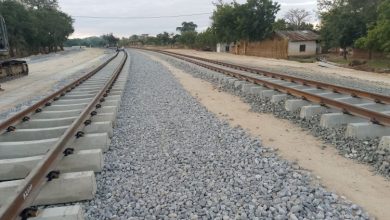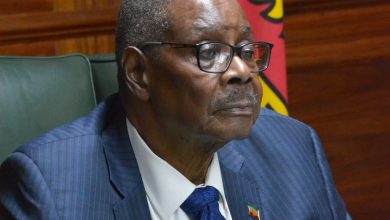Malawi still at the crossroads part 1
We are facing another election on September 16 2025. As with all elections, this one is supposed to usher in changes and make a difference. Or at least that is what the many political parties are promising.
But voters beware: the electoral outcome will not suddenly change the fast deteriorating state of our fragile economy.

I know this assertion may sound like a pessimistic perspective, but let us examine the current economic trends and performance:
lLong and frequent fuel queues snaking for miles.
l Rising prices particularly for food (inflation >25 percent).
lDwindling forex reserves resulting in widespread forex shortages.
l Rising public debt driven by unsustainable borrowing ( >90 percent of GDP).
lPersistent fiscal deficits, amongst the highest in Africa ( > nine percent of GDP).
lWidening current account deficit (trade deficit) at about 20 percent of GDP.
lLow food reserves that risk food shortages in the coming months.
l Poor access to electricity and continued power outages in cities.
It is no wonder that the Happiness Index, issued by the United Nations Development Programme (UNDP) for 147 countries ranks Malawi within the bottom five. This is astounding for a country that has so much in terms of natural beauty and resources.
Similarly, the 2024 UN Human Development Index ranks Malawi at number 172 out of 193. And if we look at gross national income, the traditional measure of prosperity, at $550 (about K963 050) per capita, Malawi is near the bottom of the global list.
The economy has clearly gone off-track, particularly in recent years. Looking at the last 10 years, the data suggests that the country’s economic trajectory has remained at a standstill and that the people have seen dwindling incomes in real terms, partly due to high population growth but mostly because of high inflation and increased debt levels.
How did we get it so wrong and why has performance deteriorated further in the last five years?
Going nowhere, slowly
Malawi is a country that is not moving or maybe, to be more accurate, moving very slowly. Actually, in real terms, Malawi has regressed over the past two decades. Of course there has been some progress, particularly in some indicators of human development such as literacy and life expectancy.
But on the whole, the country has not progressed at a pace that would keep up with rapid population growth.
Comparisons across the region show that the country has fared poorly in relation to its neighbours both at a macro-economic level but also in terms of delivering essential public services to the population.
The comparison with other countries will be explored more fully in future articles. Our neighbours, facing similar external shocks were able to weather the shocks better and rebound quicker from natural calamities.
So what exactly is going on?
We need to distinguish between long-term structural constraints and short-term issues related to policy choices. I see three sets of challenges. The first set is structural geographic barriers such as being a landlocked country and erratic weather patterns.
The second set of issues is related to policy inconsistency, and the third is weak state institutions. The current economic crisis that is deepening daily is rooted in policy inconsistencies leading to policy failure.
Failure to develop natural resources
Malawi does not lack in natural beauty and rich resources. We have rich arable land and vast water resources, but still fail to build a thriving agricultural sector. Although our natural resources are relatively modest compared to some countries in the region, we have not exploited them to full potential.
Consider, for example, that total land under irrigation is less than five percent. This is just one example of policy failure that has deepened our vulnerability to shocks. Consequently, we are still heavily dependent on rain-fed agriculture and are facing ever-changing rain patterns due to the impact of climate change.
On the irrigation potential of the country, several attempts have been made over the decades such as Likangala and Domasi schemes in Zomba in the 1970s and Kasinthula Irrigation scheme in Chikwawa in the 1990s.
These early projects delivered mixed results. More recently, the Green Belt Initiative tried to rejuvenate large-scale irrigation but was riddled with inefficiencies and financial challenges. Beyond agriculture, policy failures have been equally glaring and costly to the macroeconomy.
Macroeconomic policies and the ECF
The Extended Credit Facility (ECF) is a support programme between the government and the International Monetary Fund (IMF). Many governments enter such programs with the IMF to help stabilise the macro-economy and to support an agreed set of policy reforms.
The previous administration (2015-2019) had negotiated an ECF which was mid-way through implementation in 2020. The ECF is negotiated with a country to support policy reforms and to promote economic growth. It also serves as a powerful signalling mechanism to the market and to development partners who see it as a sign of credible policy reforms.
However, the new government in 2020 decided to cancel the ECF. It then took several years to agree another programme with the IMF which was concluded in November 2023. This programme never truly took off and was recently allowed to elapse.
But why cancel the programme in the first place? It would have been better to re-negotiate some of the terms rather than allowing a long gap without adequate external financial backstop. This, together with the fixed exchange rate, contributed to the sharp decline in forex reserves and related commodity shortages. Without the financial support that comes with IMF programmes, the economy was more vulnerable to external shocks.
The decision to cancel the ECF was taken by the government and all consequences should be fully owned by us, rather than blaming the IMF. Even if you don’t like the idea of an IMF programme, you cannot get away from the need for us to embark on urgent policy reforms. The country is in the midst of a full-blown fiscal and balance of payments crisis and without the ECF, we have limited policy levers to weather the storm.
We are flying in a storm, a hard landing is looming
So what does the approaching election mean for the economy? Citizens need to hold political leaders accountable for policy outcomes. Otherwise, we will end up with a system where every five years, promises are made but never delivered and little changes for the wellbeing of voters.
Simply stated, people seek better public services, better jobs, and better lives for their families. Yet, without credible governance systems to hold leaders accountable, very little happens. This time around, the economic risks are much higher. There is a growing risk of the economy collapsing in a disorderly fashion, also known as a “hard landing”.
Unless political and policy leaders take swift and credible corrective action, we face a high risk of a full hard landing in late 2025 or early 2026. This would bring further economic hardships to the populace and risk social unrest.
*Taz Chaponda is a development economist who has worked in several private sector roles across Africa, mostly in infrastructure finance. He has also worked in Washington DC as a senior economist at the IMF advising governments on sound public finance management, covering countries in Eastern Europe, Central Asia, the Caribbean and Africa. He is currently a senior adviser at the MasterCard Foundation and immediate past managing director of Malawi Agriculture and Industrial Investment Corporation, a development finance institution.





